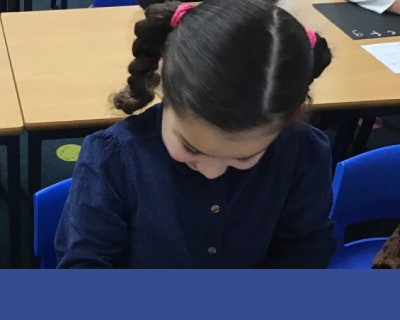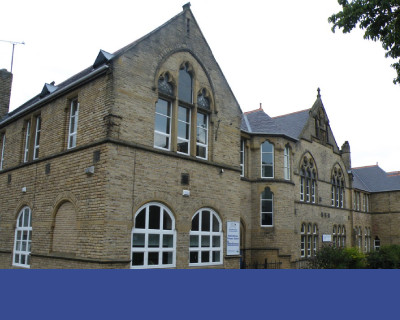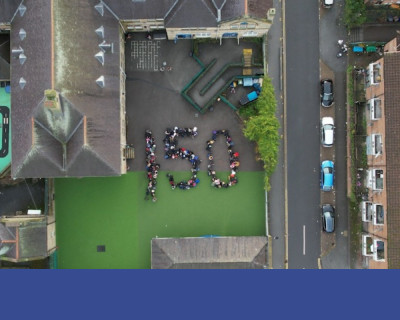History
Intent
At Netherthorpe we believe that the teaching of History should give all students a broad and balanced view of the History of Britain and other societies and times. We aim to ensure that all pupils:
Gain a coherent knowledge and understanding of Britain’s past and that of the wider world which helps to stimulate pupils’ curiosity to know more about the past;
Are encouraged to ask perceptive questions, think critically, weigh evidence, sift arguments, and develop perspective and judgement;
Begin to understand the complexity of people’s lives and the process of change;
Understand the diversity of societies and relationships between different groups, as well as their own identity and the challenges of their time.
We seek to inspire in children a curiosity and fascination about the world and its people which will remain with them for the rest of their lives, equipping them well for further education and beyond.
Implementation
The children are encouraged to be active historians that carry out their own studies beyond that of the classroom to ensure they develop research skills and have a degree of ownership in the knowledge they acquire. This will enable them to develop a broader perspective of history beyond a prescribed curriculum.
The Chris Quigley progression of skills for History has been adapted for use at Netherthorpe Primary School; these skills provide progression and challenge as children move from KS1 into and through KS2. Skills are incorporated into learning objectives that ensure that all the requirements of the National Curriculum for History are met.
We identify key vocabulary essential to support children in developing and expressing their understanding of History and share these with parents and carers.
EYFS Curriculum Aims
The Early Years Foundation Stage (EYFS) follows the ‘Development Matters in the EYFS’ guidance which aims for all children in Foundation Stage to have an ‘Understanding of the World; people and communities, the world and technology’ by the end of the academic year.
We start learning about aspects of the children’s lives that are relevant to them. Things that are real and experienced by them. Aspects of history that are not abstract and beyond their comprehension. This involves looking at the structure and organisation of their families. We then look at events and celebrations that take place regularly throughout the year. These are events such as Bonfire night, Eid, Christmas and others. We develop the children’s understanding of the concept of time, change and development by studying the life cycles of animals.
KS1 Curriculum AIms
In KS1, the Historical skills focus starts with focusses on what the children know. Knowledge that the children can grasp and experience, such as lifecycles and the stages in human growth and that of animals. We then move onto aspects of change within national life and the world around them within their living memory of History before moving to events that go beyond living history.
The curriculum the children follow is titled ‘Amazing people and events’. The children study events beyond living memory that are significant nationally or globally. For example, the Great Fire of London and Bonfire night and the main historical figures involved such as Guy Fawks and the reasons behind his actions. They also study the lives of significant individuals in the past who have contributed to national and international achievements. They compare aspects of life in different eras and compare them with the present time in which they live.
This will ensure a firm foundation for KS2 History.
KS2 Curriculum Aims
Understanding and knowledge of the significance of the school locality, Sheffield and the United Kingdom are developed further in KS2. We continue to build on children’s growing understanding of the world throughout KS2, using Newsround and other child appropriate sources to respond to worldwide events as they arise. Each time an event or significant figure featured in the news is introduced to the children, the relevant location is identified on a world map, encouraging children to develop a growing understanding of events beyond their immediate community.
In KS2, History is taught on a two-year rolling programme. In order for pupils’ to experience breadth and depth, most areas of History are visited every two years with a focus on different aspects. The aim is to enable pupils to recall and build from prior knowledge and learning. During the learning taking place in a new topic, pupils are given opportunities to refer back to previously learnt knowledge. This allows them to develop and broaden their understanding of eras, significant people and events of the present and past.
In Y3/4 and Y5/6. Teachers select key knowledge and skills to be taught in each topic and in each year group across the school, ensuring that knowledge builds progressively and that children develop skills systematically.
History is usually taught in blocks across the year. In order to help ensure that learning is deep and lasting, we revisit aspects of study at various points during the year. We also refer back to previous topics studied as children move through KS2 in order to help make links and identify similarities and differences in historical periods and events studied. Once again, this helps to develop a growing understanding of the wider world. We take a whole school approach in KS2 with the topics that are taught. This allows families to study together and build a learning culture within the home that is celebrated within our school community.
Where relevant, links are made with literacy to help ensure that children gain deep and thorough knowledge and understanding of areas of the world studied. Links are made with other subjects as well, such as maths; Art/DT and making 3-D visual representations of artefacts, for example. Otherwise, historical skills are taught separately and explicitly.
Existing knowledge is checked at the beginning of each topic, as part of the KWL strategy (What I know, What I would like to Know and What I have Learned). This ensures that teaching is informed by the children’s starting points and that it takes account of pupil voice, incorporating children’s interests. If aspects of a topic that children have shown a keen interest in finding more about do not fit into the key question, they are encouraged to carry out independent research as homework.
A key question is posed and acts as the focus of study: the learning journey that children follow in order to gain an answer is explicitly discussed and recorded as it develops. By doing this, children develop skills that can be applied to answer other questions in the future and carry out further independent learning. Tasks and research are selected and designed to provide appropriate challenge to all learners, in line with the school’s commitment to inclusion. We create and use knowledge organisers to highlight key vocabulary and facts that form the basis of knowledge studied during the topic. Knowledge organisers are sent home for children to share with parents and carers. They are also used throughout study of a key question and are used by children as a practical resource.
Learning and understanding is assessed at the beginning, during and at the end of studying, as appropriate. Key knowledge from knowledge organisers is learned by the children and assessed by the teacher. Evidence of history teaching and learning takes a variety of forms, including: written work in books; drama activities that may be recorded and put on the school’s website; IT related outcomes, such as PowerPoints; presentations to other classes; and the creation of visual representations of information.
Further details of how we teach History can be found in our History policy.
Impact
Outcomes in topic and literacy books, evidence a broad and balanced history curriculum and demonstrate the children’s acquisition of identified key knowledge
We measure the impact of our curriculum through the following methods:
Assessing children’s understanding of topic linked vocabulary before and after the unit is taught.
Summative assessment of pupil discussions about their learning.
Images and videos of the children’s practical learning.
Interviewing the pupils about their learning (pupil voice).
Moderation staff meetings where pupil’s books are scrutinised and there is the opportunity for a dialogue between teachers to understand their class’s work.
Annual reporting of standards across the curriculum.
Marking of written work in books.
By teaching History in this way, we create eager and enthusiastic learners who are keen to share their understanding with teachers and classmates. Our children regularly carry out additional research as a result of learning started at school. This is then shared via PowerPoints and fact sheets for example. Our children love learning and they love sharing their growing understanding of the world. We also create children who care about their environment and are invested in protecting it.
Sharing our children’s love and understanding of History with one another at the present time, is an area for us to develop further.



